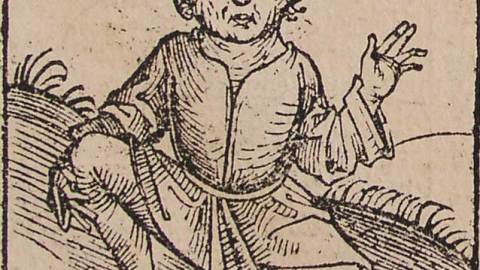The World Without Rose-Colored Glasses

People who have suffered from major depression are significantly better than other people at seeing a metaphorical forest, while the non-depressed are more alert to the trees, according to this study published a few months back in The Journal of Neuroscience. (I was led there by this New Scientist piece.) The paper suggests that depression isn’t just a disease of emotion and thought–that it also alters perception.
Julie Golomb, a neuroscientist at Yale, ran a perceptual test on two groups: one of people with no history of depression and one of people who had recovered from two or more bouts of the disease. The volunteers were supposed to watch white bars moving across a gray background, and then decide which direction the motion had taken. The recovered depressed people did better when the image was large and strongly contrasted with the background; when the image was small and low-contrast, it was the non-depressives who scored best.
Golomb and her colleagues believe the explanation lies in the neurotransmitter Gamma-Aminobutyric Acid (GABA), which is in relatively short supply in people with a history of depression. GABA is involved in the non-depressed person’s ability to suppress the big picture in order to concentrate on a detail in the field of vision. Less GABA, the researchers reasoned, means less big-picture suppression. The experiment was designed to confirm this hypothesis, which it did. It’s an elegant reminder that vision happens in the brain, not the eye.





